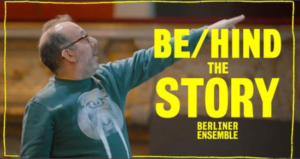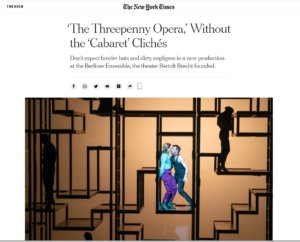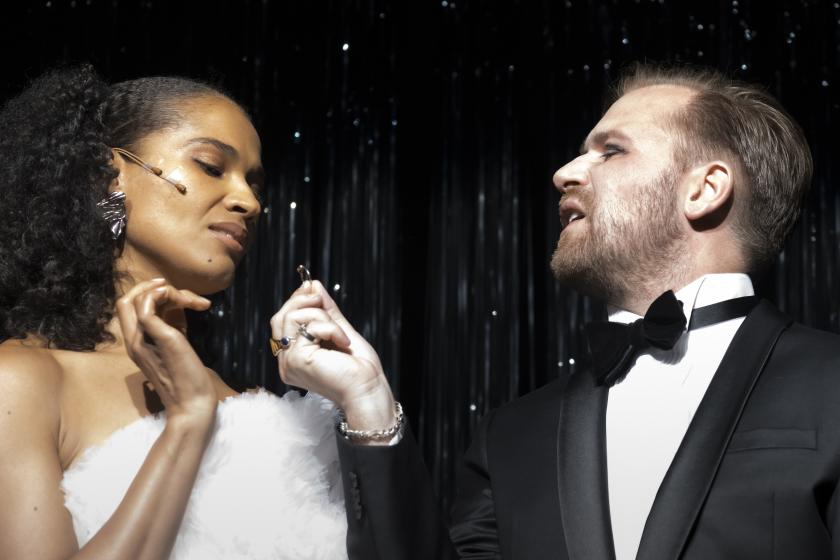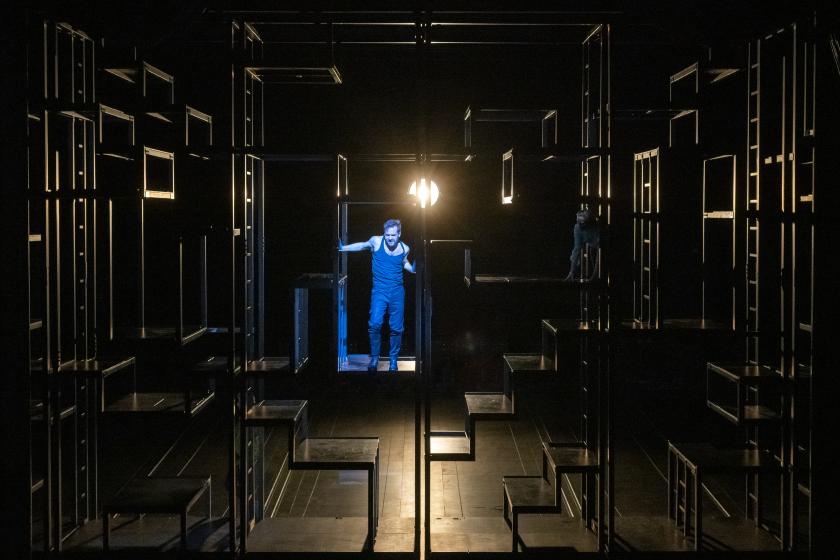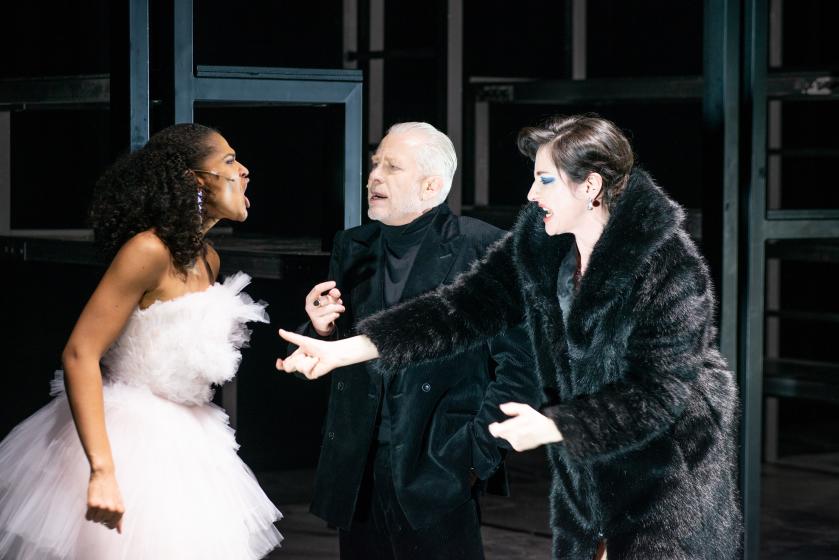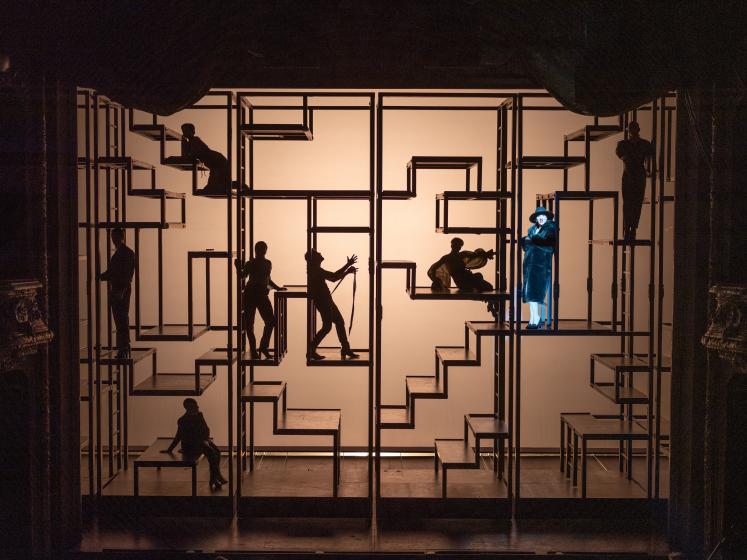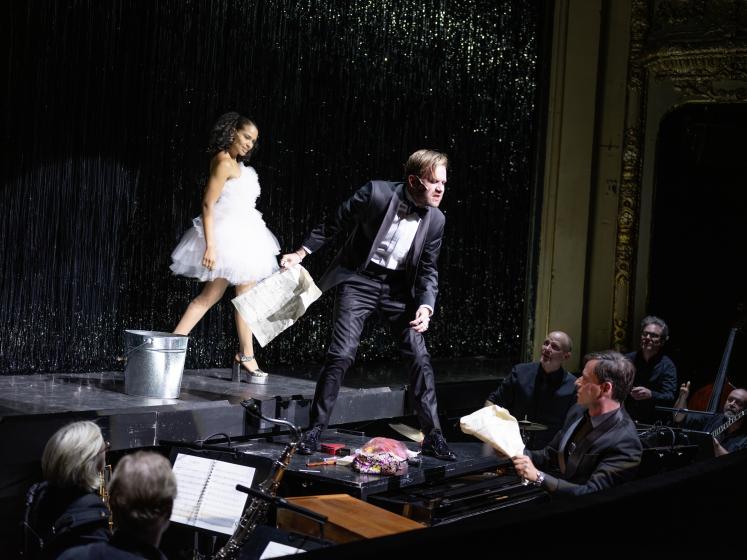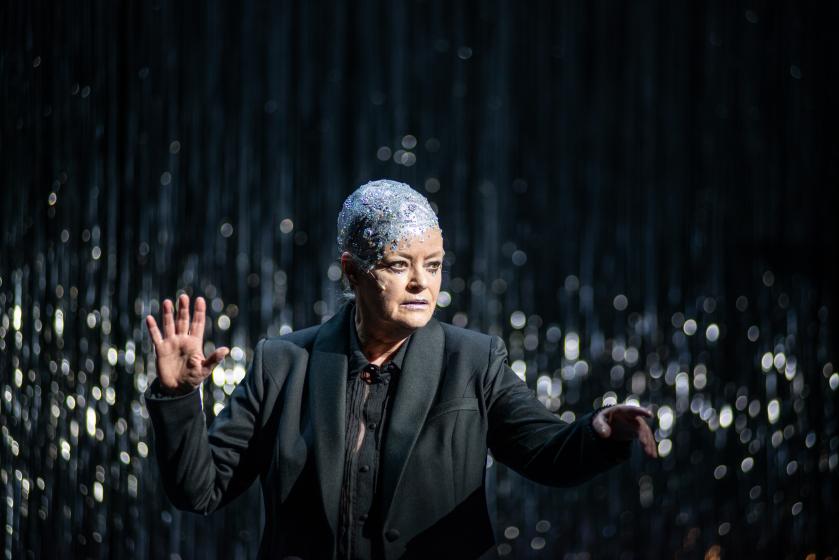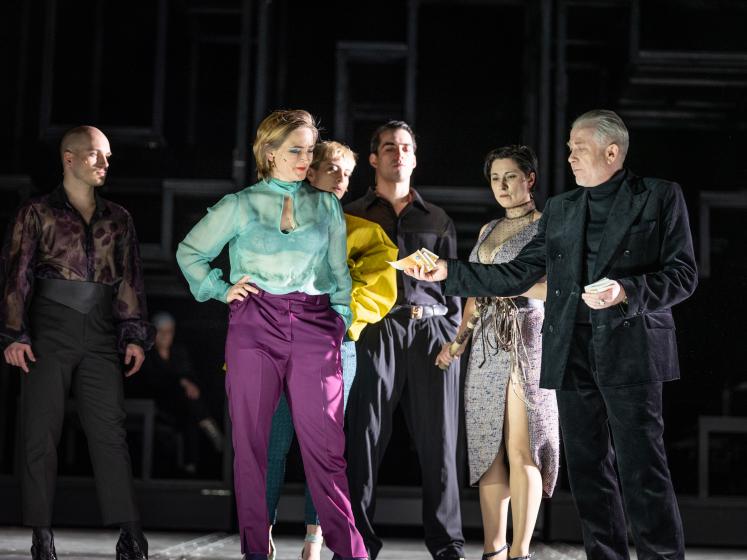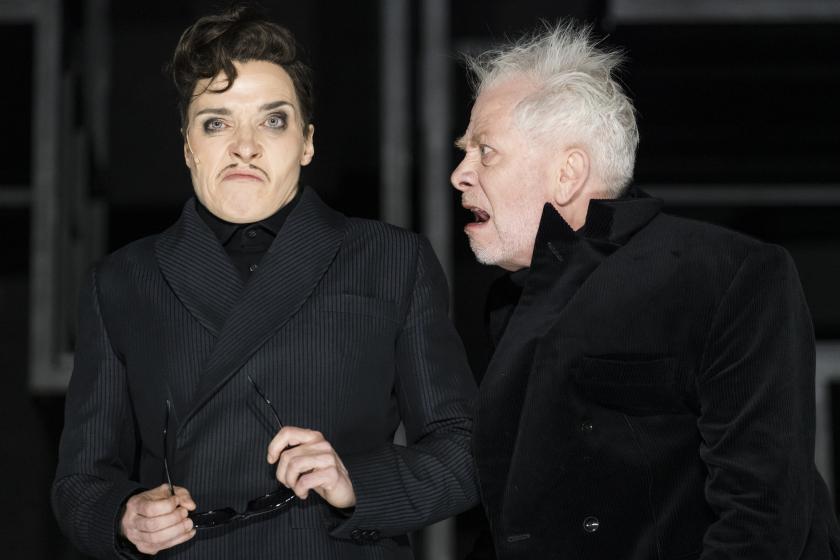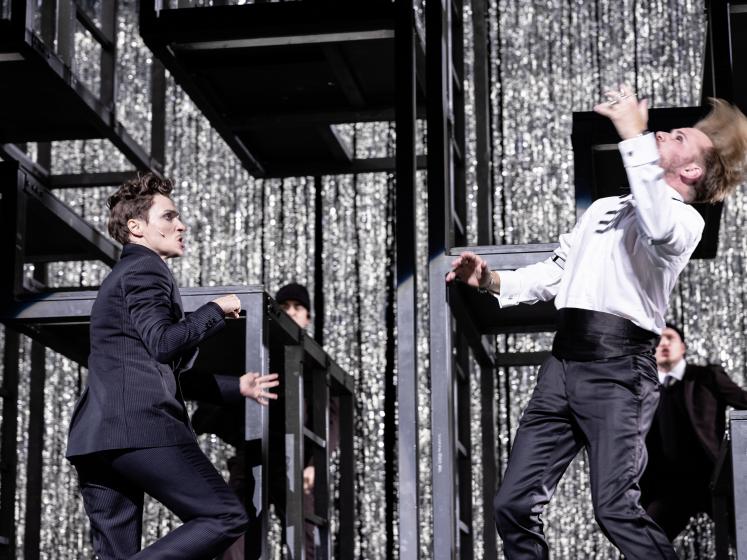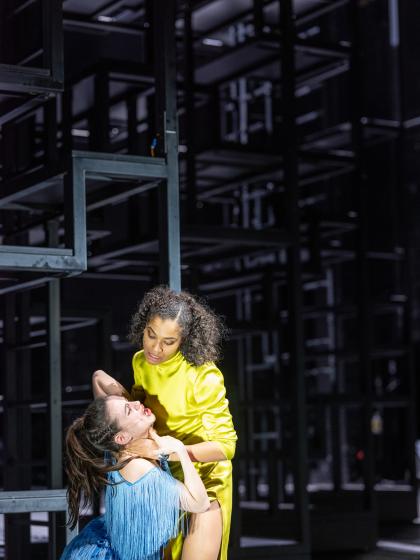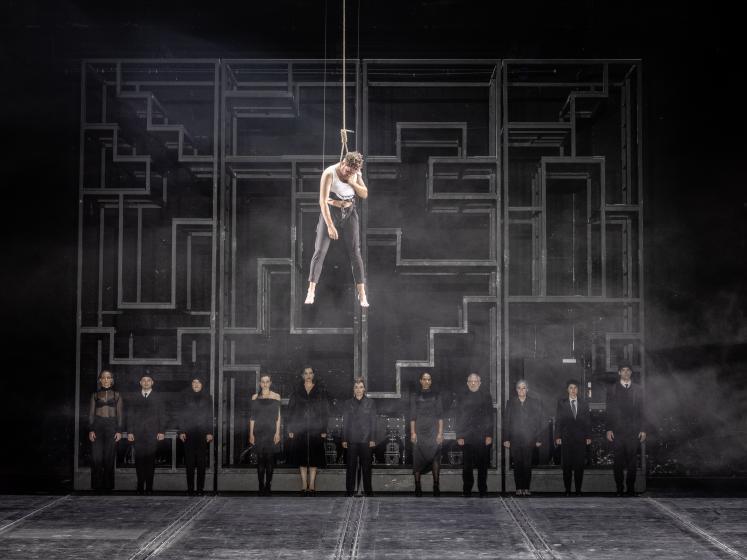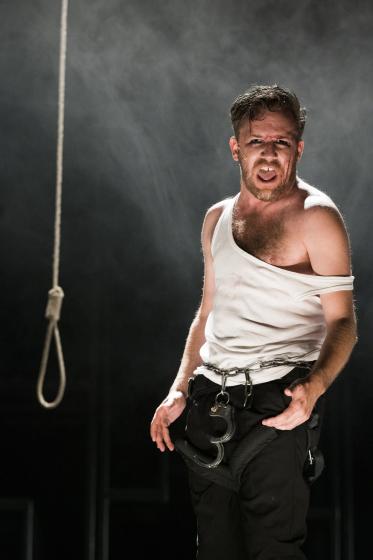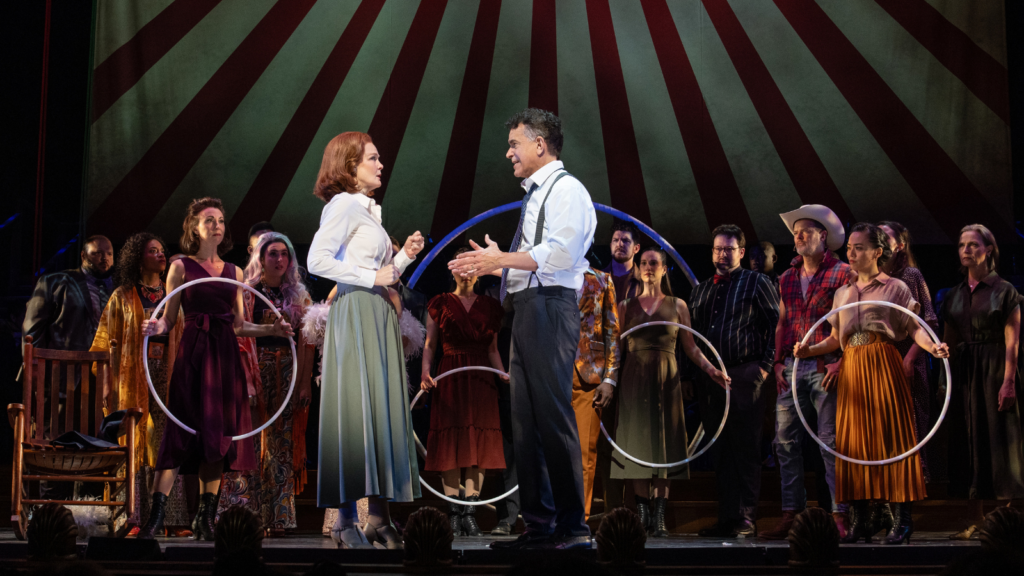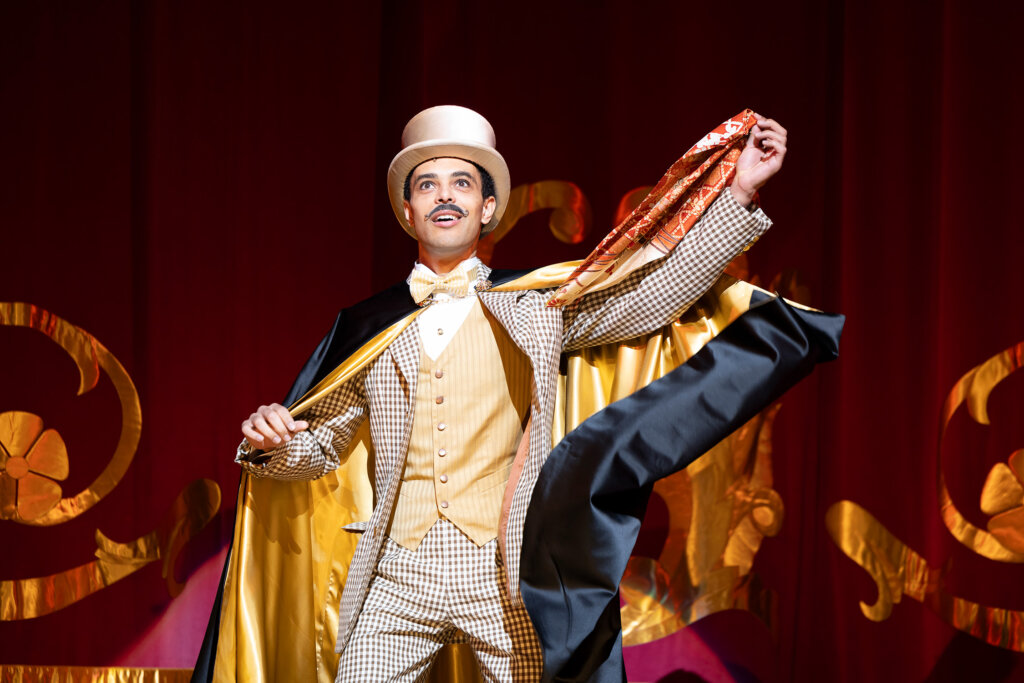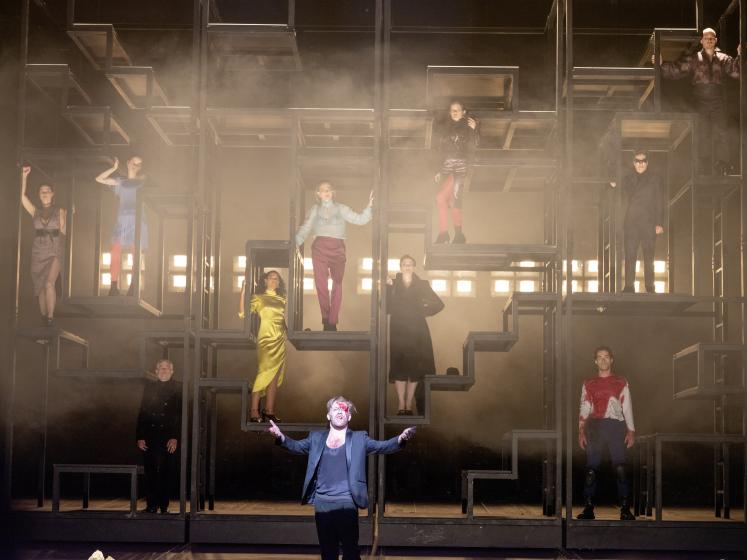
Opening to sold out performances and stellar reviews, the Berliner Ensemble’s new production of Die Dreigroschenoper is a bonafide hit. Hailed as “a phenomenal evening at the theater” by the Frankfurter Allgemeine Zeitung, the production opened on 13 August in the same theater where the work first premiered in 1928. Director Barrie Kosky and musical director Adam Benzwi bring their immense expertise to the Weill-Brecht-Hauptmann “play with music,” along with a cast that includes Nico Holonics as Macheath, Cynthia Micas as Polly Peachum, Tilo Nest as Mr. Peachum, and 2012 Lenya Competition Finalist Nicky Wuchinger in his Berliner Ensemble debut. Additional performance dates can be found here.
REVIEWS
“The evening’s dominant feeling is sheer joy: people enjoy the music, and it’s a joy to watch the actors’ versatility. Also a joy is the clever simplicity of Brecht’s parables. As staged here, they are no longer covered with dust, no longer come across as didactic, but they gain a new allure through generous delivery.”
“… a phenomenal evening of theater…. Flashing behind the shower of confetti, the glitter curtain, and the red tights wasn’t merely a whiff of glamor. It was an exuberant celebration of the game of life—as if the wing of a bird of paradise had grazed the yellowed score of Weill and Brecht.”
一 Simon Strauss, Frankfurter Allgemeine Zeitung (16 August 2021)
“Kosky clearly understands the work: the social critiques that course through Brecht and Hauptmann’s crass text; the ways in which Weill’s earworm score lodges those ideas in your mind; and how, in its tension between words and music, Threepenny dares you to connect with it emotionally amid constant reminders of theatrical artifice.”
“The vitality of Threepenny depends on intervention and adaptation; it can never be performed, as it too often has been, as a museum piece. And Kosky never treats it as one. Instead he adds and subtracts, breathing new life into a work that desperately needed it. He sheds the excesses of Act I and eliminates entire characters, for example, to reveal a recognizable but freshly presented story focused on that most fundamental of human dramas: love.”
一 Joshua Barone, New York Times (15 August 2021)
“Die Dreigroschenoper is at the center of an early case of Me Too. For a long time it was uncommon to see Elisabeth Hauptmann’s name in the program. Now she is recognized to belong there. Hauptmann’s role in the rewriting of The Beggar’s Opera by John Gay from 1728 was not minor. And that’s part of the legend: So many hands were at play as the work developed, leading to Hollywood-style chaos in the theater. And then it became an overwhelming success.”
“… therein lies the quality of the evening: a Dreigroschenoper of strong musicality. Barrie Kosky has staged a musical. What happens between the musical numbers of course matters. But more important is that the hits sizzle. In Dreigroschenoper, one golden oldie chases the next.”
“No question about it, this Threepenny Opera will be a success. It is open and compatible in all directions. It could play anywhere.”
一 Rüdiger Schape, Der Tagesspiegel (14 August 2021)
“Musically, the play is in the best of hands with Adam Benzwi, who regularly takes the podium at the Kosky-led Komische Oper…. The music holds the show together and keeps the evening moving. The new production without a doubt has the makings of a hit with the public.”
“Of course Die Dreigroschenoper is not an opera, but Barrie Kosky is an opera director. And he is a passionate defender of the composer Kurt Weill, whom he even wants to see at a level with Richard Wagner. By the end of the premiere at the Berliner Ensemble, it became clear that the Australian-born Kosky is worried little about Bertolt Brecht’s whichever-utopias. Kosky staged a shrill revue about self-promoting, womanizing Mackie Messer. It is sheer entertainment, with jokes, tempo, class. The actors are great. At the end the audience rejoices, only the director has to take some boos.”
一 Volker Blech, Berliner Morgenpost (14 August 2021)
“The greatest revelation was the way Adam Benzwi got the singers to perform this music – with utmost casualness and linguistic detail. He allows everyone to change tempo at will, which makes the music breathe, and he really roughens things up with the band to make this Kurt Weill sound “raw” and exciting, not slick and overfamiliar.”
一 Kevin Clarke, Operetta Research Center (14 August 2021)
“One thing that becomes quickly palpable in the opening minutes is that for director Barrie Kosky, Intendant of the Komische Oper Berlin, Kurt Weill’s music is the most important thing in Dreigroschenoper. In any case, he has a high opinion of Weill… Kosky even grants him the same significance as Richard Wagner for the musical development of Germany… Brecht’s class warfare attitude, which despite today’s similar problems often comes across as oddly antiquated, is jolted forward by Weill’s music and the dramatic art of all the participants in the background. After many sluggish versions of Dreigroschenoper, Kosky’s version is now the most entertaining without coming across as flat.”
一 Ursula Wiegand, Online Merker (21 August 2021)
“The new Kosky edition of The Threepenny Opera will give the Berliner Ensemble a new box office hit, just as it did at the end of the 1920s.”
一 Cora Knoblauch, RBB 24 (14 August 2021)
OTHER MEDIA
Behind the scenes video at the Berliner Ensemble featuring director Barrie Kosky and dramaturg Sibylle Baschung (click image to view)
New York Times feature by A.J. Goldmann (5 August 2021)
Production Photos
- Cynthia Micas, Nico Holonics | Photo: Jörg Brüggemann
- Nico Holonics | Photo: Jörg Brüggemann
- Cynthia Micas, Tilo Nest, Constanze Becker | Photo: JR Berliner Ensemble
- Constanze Becker, Ensemble | Photo: JR Berliner Ensemble
- Cynthia Micas, Nico Holonics | Photo: JR Berliner Ensemble
- Josefin Platt | Photo: JR Berliner Ensemble
- Nico Went, Bettina Hoppe, Andrea Wesenberg, Nicky Wuchinger, Julia Berger, Tilo Nest | Photo: JR Berliner Ensemble
- Kathrin Wehlisch, Tilo Nest | Photo: Jörg Brüggemann
- Kathrin Wehlisch, Nico Holonics | Photo: JR Berliner Ensemble
- Laura Balzer, Cynthia Micas | Photo: JR Berliner Ensemble
- Nico Holonics, Company | Photo: JR Berliner Ensemble
- Nico Holonics | Photo: Jörg Brüggemann
